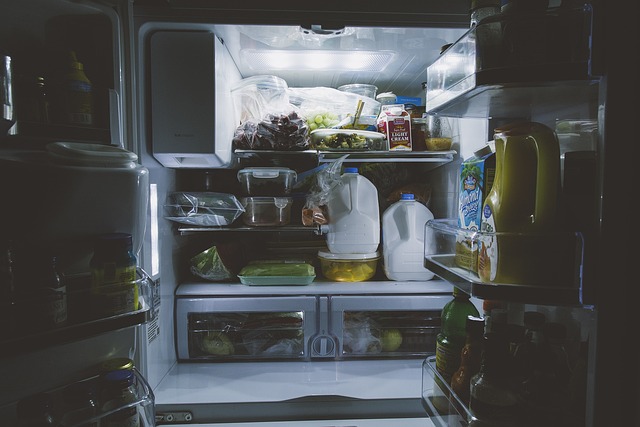Your refrigerator, an unsung hero of your home, stands as a reliable guardian of your perishables and a keeper of chilled beverages. But what if I told you that lurking behind this everyday appliance is a hidden threat that could disrupt its efficient operation in the blink of an eye? Power surges, those sneaky spikes in electrical voltage, can wreak havoc on your refrigerator – the same refrigerator that’s been faithfully preserving your groceries and leftovers.
In this article, we’ll explore the crucial reasons why your refrigerator needs a power surge protector and delve into real-life scenarios where such protection can save the day.
Understanding Power Surges
A power surge is a sudden and temporary increase in the electrical voltage supplied to your home’s electrical system. It can last for just a fraction of a second, yet during that brief time; it can carry an excessive amount of electrical energy.
Power surges, those sudden spikes in electrical voltage, can occur due to lightning strikes, utility grid fluctuations, or faulty wiring. These surges can send excess electricity coursing through your home’s electrical lines, endangering any connected electronic devices.
While we instinctively associate power surges with computers and TVs, we often forget that our beloved refrigerator is equally susceptible.
So, when do you need a power surge protector for your refrigerator?
A surge protector for your fridge is recommended when you want to safeguard the appliance from potential power surges and voltage fluctuations that could damage its electronic components.
Here are some scenarios that highlight when you need a surge protector for your refrigerator:

1. Frequent Electrical Storms: If you live in an area prone to lightning strikes and thunderstorms, your home’s electrical system could be exposed to sudden power surges. Lightning strikes can send surges through power lines, potentially damaging sensitive appliances like your refrigerator. Using a surge protector provides an additional layer of defence during these storms.
2. Unstable Power Grid: Areas with unstable power grids, frequent power outages, or voltage fluctuations pose a risk to your electronic appliances. These fluctuations can result from factors like high demand, utility maintenance, or equipment failures. A surge protector helps stabilize the voltage reaching your refrigerator, preventing damage due to an irregular power supply.
3. Valuable Contents: If your refrigerator contains expensive groceries, medications, or other perishable items, the cost of potential food spoilage can be significant. A power surge that disrupts your fridge’s cooling mechanisms could lead to wastage and financial losses. Using a surge protector ensures that your fridge remains operational, preserving your valuable contents.
5. Appliance Longevity: Investing in a surge protector is an investment in the longevity of your appliances. Appliances like refrigerators are essential and can be expensive to repair or replace. By protecting them from power surges, you extend their lifespan and reduce the likelihood of breakdowns.
6. Other Sensitive Electronics: If your refrigerator shares an electrical circuit with other sensitive electronics like computers or entertainment systems, the impact of a power surge can be widespread. Using a surge protector not only safeguards your fridge but also shields all connected devices from potential harm.
7. Peace of Mind: Prevention is better than cure, so they say. Even if you’re unsure about the risk of power surges in your area, using a surge protector offers peace of mind. It’s a proactive measure that ensures your refrigerator is well-protected against unexpected events.
Modern Fridges complexity
Today’s refrigerators are far from the simple cooling units of the past. They’re equipped with advanced features like touchscreens, digital controls, and even Wi-Fi connectivity. While these innovations offer convenience, they also expose our refrigerators to potential harm during power surges.
The complex electronic components within these appliances can easily be damaged by sudden voltage spikes, leading to malfunctions or even permanent breakdowns.
Avoiding Hidden Costs
Imagine returning home after a vacation only to find your refrigerator malfunctioning due to a power surge. The repair bills or the cost of purchasing a new refrigerator can quickly sour your mood. Refrigerators are not cheap investments; high-end models can cost several thousand dollars.
Even if you opt for repairs, the expenses can still be substantial. However, installing a power surge protector can act as a buffer, shielding your refrigerator from voltage fluctuations and sparing you from these hefty costs.
Choosing the Right Surge Protector for Your Fridge
Selecting the right surge protector for your refrigerator is crucial to ensure maximum protection against power surges and voltage fluctuations. Here are the key factors to consider when making your choice:
1. Joule Rating: The joule rating indicates the surge protector’s capacity to absorb energy from power surges. A higher joule rating signifies better protection. Given that refrigerators are sensitive appliances opt for a surge protector with a higher joule rating to ensure it can handle potentially strong surges without risking damage to your fridge’s electronic components.
2. Clamping Voltage: Clamping voltage, also known as let-through voltage, is the threshold at which the surge protector starts diverting excess voltage away from your appliance. A lower clamping voltage is better since it means the protector will respond faster to surges. For refrigerators, look for surge protectors with clamping voltages around 400V or lower.
3. Response Time: The response time of a surge protector indicates how quickly it can start redirecting excess voltage. Faster response times are more effective in guarding against sudden surges. When it comes to refrigerators, quicker response times are crucial to shield sensitive electronics.
4. Outlets and Type: Consider how many outlets you need to protect your refrigerator and possibly other nearby appliances. Also, ensure that the surge protector is designed for appliances, as there are specific models tailored to handle the unique power requirements of refrigerators.
6. Indicator Lights: Indicator lights on a surge protector can provide information about its status. Look for models that offer clear indicators for power, grounding, and protection status. These lights help you quickly determine if the surge protector is functioning correctly.
Key takeaway
Safeguarding your refrigerator with a surge protector is a proactive measure that shields your appliance from power surges, voltage fluctuations, and potential breakdowns, ensuring both the longevity of your fridge and the preservation of its valuable contents.
